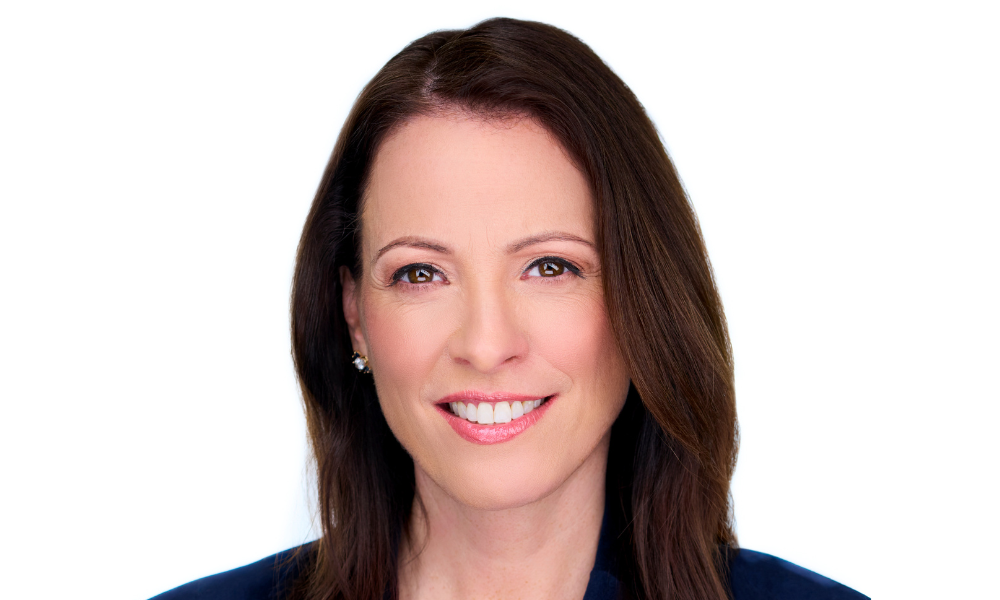
Danielle McMahan, chief people officer at Wiley, discusses culture, pay transparency, career development

At Wiley, an emphasis on helping people bring their best selves to work and life is at the forefront of their inclusive culture.
“We focus on our holistic colleague experience to help colleagues be their best,” says Danielle McMahan, Chief People Officer.
“To do that, we’ve identified four key pillars that matter the most for our colleagues: Purpose, Growth, Community and Care. Getting these experiences right enables colleagues to creatively unlock their next chapter.”
And the company’s Employee Resource Groups (ERGs) are a critical component of this culture, she says.
“We’ve spent a lot of time with our ERGs and are very thoughtful about the ERGs that we have put in place. They are based on either ethnicity, gender, sexual orientation, and even early-career colleagues at Wiley.”
One of McMahan’s proudest achievements is the company’s work on pay transparency.
“We were ahead of the curve for when legislation came out in New York and California because we had already been on a three-year journey to look at all of our roles across the organization. We made sure we had the right benchmarks and had started an education campaign for our colleagues.”
This proactive approach positioned Wiley as one of the few employers to offer accurate benchmarking on all job descriptions very early, emphasizing a commitment to competitive and equitable pay.
Data-driven decision-making is another cornerstone of Wiley’s people strategy.
“We are putting in another new platform to bring all of our HR data together so that we can be much more sophisticated in the types of analytics we do and the correlations we run,” McMahan explains. “It’s all about supporting the business so we can best focus on our customers.”
This enables predictive analytics to better understand and meet the needs of Wiley’s colleagues and business partners.
Looking to the future, McMahan is particularly excited about the potential of artificial intelligence (AI).
“We are starting a conversation on how to enable and create an experience around personalization. AI will help us target what is most impactful for each colleague, creating a unique personalized experience.”
This vision extends to the user experience, akin to the seamless experience offered by platforms like Amazon.
To support employee well-being, Wiley has expanded its Employee Assistance Program globally and introduced tech-enabled solutions like Headspace, she says.
“Our colleagues absolutely love Headspace, and we have one of the highest utilization rates among Headspace clients. This focus on mindfulness and meditation is crucial for colleagues’ mental and emotional well-being.”
Additionally, initiatives like Happy Fridays June-August and Focus Fridays the rest of the year, allow employees to take space for themselves, whether for personal development or relaxation.
Leadership development is also a priority at Wiley, says McMahan.
“We believe every colleague is a leader, from the CEO to the most junior individual. We rolled out our ‘Leading at Wiley’ program, leveraging our own content from ‘The Leadership Challenge.’ Our top 100 leaders have already completed the program, and they are modeling the way by using the language and reinforcing the five fundamental practices for their colleagues.”
Career growth and promotion are central to Wiley’s approach, she says.
“To mitigate downsizing our recruitment team during the recession, we repurposed many of them to re-recruit our own talent. Programs like ‘Championing Your Career’ teach colleagues about career advancement opportunities across the organization.”
This has led to 34% of open roles being filled by internal colleagues, she says.
Leveraging AI for career development
McMahan envisions AI playing a significant role in career development, says McMahan.
“I would love to see a future where colleagues get teed up with different learning programs based on their career aspirations. As roles change rapidly, it would be great for colleagues and organizations to have AI help identify skills that can be repurposed for new opportunities.”
Reflecting on the future of HR and AI, McMahan notes, “The hot topics from 10-15 years ago, like recruiting platforms and learning management systems, are being revisited with AI. But we need to think bigger: How do we leverage AI to drive a personalized experience throughout the colleague journey?”